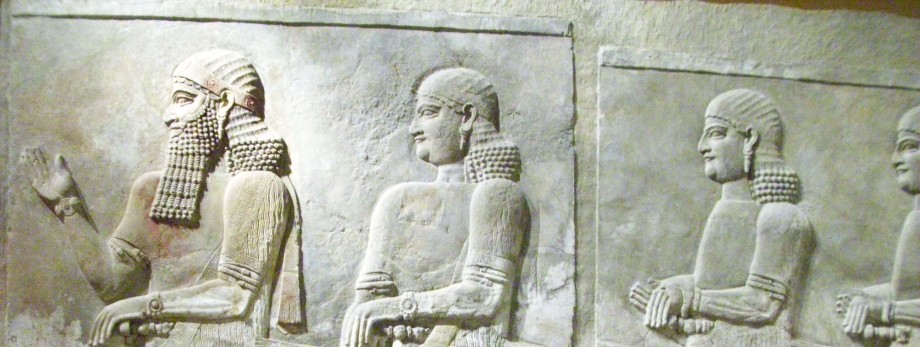 This should be my last post on my interactions with the Emergence Christianity conference a few weeks ago. I keep thinking of everything I’d like to say, but can’t manage to get it in one entry. So here is one more bite at the elephant.
This should be my last post on my interactions with the Emergence Christianity conference a few weeks ago. I keep thinking of everything I’d like to say, but can’t manage to get it in one entry. So here is one more bite at the elephant.
I think Phyllis Tickle put her finger on one of the biggest issues in Christianity today: authority. Authority matters have divided Christians since the first century. Divisions over circumcision between Christians at the Jerusalem Council in Acts 15 is a good example. Should the Gentiles be circumcised since the first century bible (the Old Testament) required it? The Christian literalists thought this was a slam dunk (v. 5): the Bible requires all believers to be circumcised. That’s it. Game over. The Bible says it, I believe it, that settles it. But Peter disagreed. So did Paul and Barnabas. All these guys used their personal experiences an argument. At this point, a Bible literalist’s head will explode. Personal experience should always bow to the Bible; and in the first century, that was the Old Testament. What’s worse is the fact that James quoted Amos 9:11-12 (LXX) [and alluded to Isaiah 45:21] which have nothing to do with circumcision. A Bible literalist, would have to say that James, Peter, Paul and Barnabas lose and the Pharisee Christian converts win. But that’s not what happened. Instead the church issued a statement freeing the Gentile converts from the circumcision requirement. Consequently, I’m sure the circumcised Gentiles were pretty peeved.
Who had the authority to decide what God required and what he did not? The leaders of the church: apostles and the elders (15:22-23).
During the 1500s, corruption in the church went unchecked until the Protestant Reformation opposed the church’s authority. The basis for their revolt was that the Roman Catholic church was contradicting the Bible, which should be man’s sole source of divine authority. Thus, Sola Scriptura was one of the enduring battle cries of Protestants. The printing press made it possible for more people to have the Bible and to see clearly what it required. Now that people had the complete Bible translated in a their native language, they could hold the Church accountable to do what it required. God wrote the Bible, so it is infallible; there can be no contradictions in it (if you think there are, you have either misunderstood or are rebelling against God). If we all study the Bible correctly, we will see the one message that God wants to convey. As Phyllis Tickle stated, the Protestants exchanged a physical Pope for a “Paper Pope.”
Who has the authority to decide what God required and what he did not? Each and every Christian is a priest with that right (1 Peter 2:9).
Centuries later, the Catholic church made their own rule about infallibility. The rule of ex cathedra, the Pope’s infallible utterance, was dogmatized during Vatican I (1869-70) and reaffirmed at Vatican II (1962-65).
Who has the authority to decide what God required and what he did not? The church leaders who are approved to interpret the text correctly, and infallible statements may come from the Pope via ex cathedra.
These days postmodernism has affected us all. We acknowledge that there is more than one approach to truth because all our perspectives will always influence how we see and interpret information. The Protestant idea of the Bible being the only source of divine truth is still a pleasant idea–it is comforting to know that something is in black and white–but the fact that there are thousands of protestant denominations in the world today is certainly not encouraging. Many of these denominations evangelize by saying things like “Do you know for absolute certain that you will go to Heaven when you die? I mean, do you know that you know that you know? Is there any doubt in your mind?” Well, considering the fact that there are 6 different Christian churches on this street alone, and that I have about 5 different English translations of the Bible on my shelf…there is at least a little doubt. But I trust Christ and participate with him in worship. I’m certain that is enough–relatively speaking.
Tickle mapped this framework out in her lectures and suggested that we are currently in a Wikipedia kind of Church age, where authority is really a matter of public discourse than determining who has the right to give us direction. So Christianity becomes much more broad, we listen to those other Christ-followers who have different ideas, learning to love and respect their views even if we disagree. Pledging allegiance to Christ and participating in worship is the center of gravity. We must allow the latitude for others to disagree. Let the Spirit of God work in that person and stop thinking that you will turn argue that person out of their “wrong thinking.”
Who has the authority to decide what God required and what he did not? The church community via discourse. Regularly engage in respectful dialogue and let authority take care of itself.
I found these ideas very intriguing and wonder where we will be in the next 10 years.
